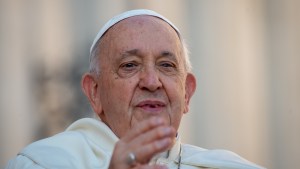Forgiveness is hard. It is not only difficult to give and receive but, first and foremost, it is hard to understand. Why forgive? What’s in it for me? Is not forgiveness contrary to justice? What about my sense of dignity? Cherry on top, forgiveness does not erase the hurt, nor does it condone the offense.
If anything, forgiveness, in its truest form, is a conscious decision to release the burden of resentment and anger. Once the burden is gone, we can stand tall again. We are straightened, rearranged, tidied.
The Gospel of Matthew offers a powerful perspective on forgiveness, even if it does not seem to be talking about it. “But when you give to the needy, do not let your left hand know what your right hand is doing, so that your giving may be in secret. And your Father, who sees in secret, will reward you openly” (Matthew 6:4).
This passage, often referred to as the “left hand, right hand” adage, can be beautifully applied to the act of forgiveness. Is forgiveness something we give “to the needy”? Are we in need of forgiveness? And why in secret?
Releasing
Imagine a friend betrays your trust. The hurt is, of course, undeniable. Forgiveness, however, is not about pretending the betrayal didn’t happen. It’s about acknowledging the pain and choosing to move forward without clinging to it – not to the pain, nor to the fact that we moved on, not even to forgiveness itself. When we secretly forgive someone, we are giving up not just on resentment, but on many other subtle feelings that might lurk in and “pollute” our forgiving act. We are releasing the hold that person’s actions have on our own emotional well-being, yes. But there is much more at play.
Quiet forgiveness is consistent with the idea of not seeking external validation for our good deeds. Forgiving someone publicly may be fueled by a desire to get them to acknowledge their wrongdoing or to gain recognition for our “bigger person” attitude. True forgiveness comes from a genuine desire to unburden ourselves and others. Our need for justice is set aside and traded for sheer trust in God’s righteousness.
There’s a misconception that forgiveness means reconciliation. Forgiveness allows us to let go, yes, but it doesn’t require us to resume the same relationship dynamic. Depending on the severity of the offense, boundaries may need to be set. However, the focus should be on releasing the burden our hearts and those of others. It is a process that (ideally) remains a personal transformation – for all parts involved.
Faith in action
By keeping our act of forgiveness hidden, we are essentially putting our faith into action. In the first place, we are following Jesus’ advice on forgiveness: “If you forgive others their transgressions, your heavenly Father will forgive you” (Mt 6:14). We oftentimes forget that the initiative is ours: If we forgive others, then the Father will forgive us. It is our responsibility to bring forgiveness into the world – and this, up to 70 times seven (a number to be taken symbolically and not literally).
However, as should be the case with all good deeds, the act of forgiving should be kept in secret. Forgiveness is about trusting that God will eventually take care of justice, healing, reparation, reconciliation. It is not a public display of our own benevolence.
Remember, forgiveness is a gift: for-giving. We do not “get” anything from it. Not even the satisfaction of having forgiven someone. For forgiveness to be forgiveness, we must for-get that we ever for-gave. We keep the deed in secret, even for ourselves. By following the “left hand, right hand” principle, we can embrace the quiet power of forgiveness and move on with a light heart – one that is radically unburdened, even from the temptation of feeling proud of our alleged oh-so-merciful attitude.





